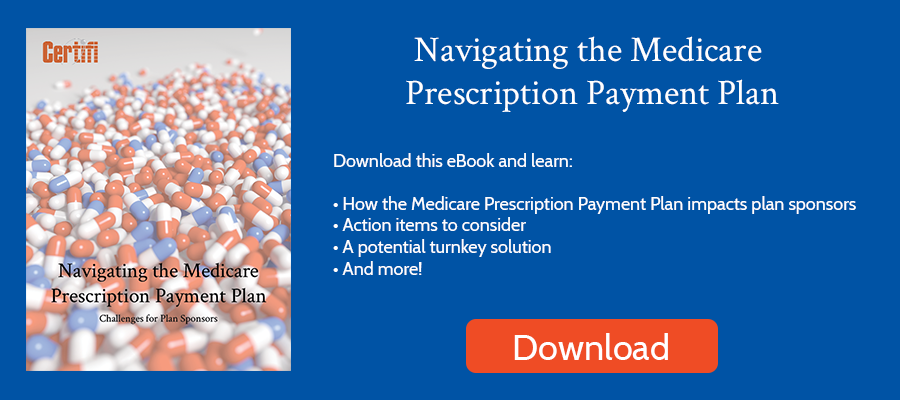The landscape of Medicare Advantage (MA) is constantly evolving, and the recently released Contract Year 2025 Medicare Advantage and Part D Final Rule outlines significant changes that will impact both beneficiaries and health plans. As an MA organization, staying ahead of these trends ensures a great beneficiary experience while ensuring you remain competitive.
Here’s a brief intro to some of the changes outlined in the final rule and their potential impact on your organization and your members.
Focus on Transparency and Beneficiary Protection
The new regulations prioritize transparency and beneficiary protection. Here are the highlights:
Enhanced MTM Targeting
The government requires Medicare Part D plans to offer Medication Therapy Management (MTM) programs to help people take their medications safely and effectively. However, fewer people have enrolled in these programs.
CMS fears this may partly be due to Part D plans making it harder to qualify for MTM. For example, they may require people to have a very high number of very expensive medications.
The Contract Year 2025 Medicare Advantage and Part D Final Rule:
- Expands the list of qualifying chronic diseases: Currently recommendations are based on nine conditions, but this would formally add HIV/AIDS, bringing the total to 10.
- Makes it easier to qualify based on medications: Some plans only consider a certain number of drugs, but this would require them to consider all used for long-term health conditions.
- Lowers the medication cost threshold: Today, a high cost is required to qualify, but the final rule would base it on the average of 8 generic drugs, making it easier to reach.
The revised MTM targeting criteria will ensure beneficiaries with chronic conditions have better access to Medication Therapy Management programs, potentially improving medication adherence and health outcomes. Part D plans need to refine targeting strategies to identify eligible members effectively.
Expanded Behavioral Health Coverage
Currently, MA plans need to consider factors like travel time and distance when building their network of providers to ensure enrollees have reasonable access to needed services. Today, there are separate rules for different types of behavioral health providers, like psychiatrists and social workers.
The final rule creates a new combined category called “Outpatient Behavioral Health.” The category would include:
- Marriage and family therapists (MFTs)
- Mental health counselors (MHCs)
- Opioid treatment programs (OTPs)
- Community mental health centers
- Other behavioral health and addiction specialists
There will also be new rules for how far enrollees must travel to reach these providers and how many providers must be in each area.
| Provider/Facility Type | Large Metro | Metro | Micro | Rural | Counties with Extreme Access Considerations (CEAC) | |||||
|---|---|---|---|---|---|---|---|---|---|---|
| Max Time | Max Distance | Max Time | Max Distance | Max Time | Max Distanct | Max Time | Max Distance | Max Time | Max Distance | |
| Outpatient Behavioral Health | 20 | 10 | 40 | 25 | 55 | 40 | 60 | 50 | 110 | 110 |
Finally, some commenters were worried that nurse practitioners (NPs), physician assistants (PAs), and clinical nurse specialists (CNSs) could be included in behavioral health networks even if they are not qualified.
The new rule says MA organizations should only include NPs, PAs, and CNSs if they have treated at least 20 patients for behavioral health problems in the past year. MA organizations must check annually to ensure that NPs, PAs, and CNSs meet this requirement.
A specific list of services will count towards the 20-patient requirement. CMS will update the list every year. MA organizations must show documentation that NPs, PAs, and CNSs meet this requirement.
Adding “Outpatient Behavioral Health” to network adequacy standards emphasizes the importance of mental health services. MA plans must prepare to evaluate and potentially expand their networks to include qualified mental health providers.
Stricter Rules on Agent Compensation
CMS is revising the rules for how agents and brokers get paid for enrolling people in Medicare Advantage plans. Here’s why:
- Some agents and brokers are getting extra payments (called “administrative fees”) on top of their regular commission.
- These extra fees can be very high and plans sometimes base these payments on how many people the agent signs up, rather than what plan is best for the person.
- Incentivizing agents to push people into certain plans, even if they aren’t the best option, harms beneficiaries.
- As a result, some people enroll in plans that don’t meet their needs.
The new rule aims to prevent this by:
- Limiting the total amount of money plans can pay an agent or broker enrolling someone in a plan.
- Make sure plans base these payments on the service provided (like attending training), not how many people are enrolled.
Overall, the goal is to ensure agents and brokers recommend plans that are best for beneficiary’s health needs, not their wallets. The final rule aims to eliminate practices that circumvent compensation caps for agents and brokers. Plans may need to revise existing compensation structures to ensure compliance.
SSBCI Requirements and Oversight
The Contract Year 2025 Medicare Advantage and Part D Final Rule strengthens requirements for Special Supplemental Benefits for the Chronically Ill (SSBCI). MA organizations must prove that their supplemental benefits (SSBCI) improve health outcomes for chronically ill enrollees.
MA organizations must provide bibliographies with scientific evidence to support their supplemental benefits (SSBCI) for chronically ill enrollees. CMS placed the burden on MA organizations to demonstrate that they base these benefits on sound research and have a reasonable chance of improving health outcomes.
New policies aim to improve transparency and protect beneficiaries by ensuring they understand eligibility, coverage, and disclaimers.
MA organizations now need to demonstrate the effectiveness of their SSBCI offerings and ensure clear communication to beneficiaries regarding eligibility and limitations.
Data Reporting and Increased Scrutiny
CMS has the authority to collect information from MA organizations and Part D plan sponsors to administer the programs effectively. This information helps them understand various aspects like benefits offered, enrollee costs, quality of care, and how efficiently plans operate.
Currently, CMS collects information through annual reporting requirements. This reporting includes details on enrollment, grievances, provider payments, and utilization patterns. CMS generally collects data in total for each plan.
CMS finalized some changes:
- They clarified their authority to collect more granular data if needed.
- They will be able to collect data more frequently, potentially closer to real-time.
- They want to explicitly collect information on how plans handle beneficiary requests for coverage.
These changes would allow CMS to understand how plans operate and how beneficiaries experience the programs. However, any new data collection efforts requiring additional burden on plans would go through a separate approval process.
The emphasis on data collection allows CMS to monitor MA plans more closely. MA organizations should invest in robust data reporting systems to ensure they can meet these requirements effectively.
Opportunities for Improved Care Coordination and Member Engagement
The new regulations also present opportunities to improve care coordination and member engagement:
Mid-Year Enrollee Notification
MA plans are offering more and more additional benefits to enrollees. These benefits are often underutilized, even though CMS is spending on them. MA plans now must send a mid-year notification to enrollees detailing any supplemental benefits the enrollee hasn’t used in the first half of the year (from January to June).
CMS aims to improve awareness of all the benefits enrollees have access to and encourage them to use them, ensuring that MA plans use the money allocated for these benefits more effectively.
Here are some details about the new requirement:
- The notice will be mailed annually between June 30th and July 31st.
- It will list any supplemental benefits the enrollee hasn’t used that year.
- The notice will provide information about accessing these benefits and contact details for help.
- CMS intends to inform enrollees and promote equity in using these benefits.
The requirement to notify enrollees of unused supplemental benefits mid-year empowers them to make informed decisions about their healthcare. Develop strategies to educate members about these benefits and encourage utilization.
Focus on Health Equity
Prior authorization processes in MA plans can create barriers to care, especially for disadvantaged groups. As a result of the final rule, MA plans will need to modify how they handle prior authorization requests. Here’s what’s new:
- UM Committee Expertise: At least one member on the committee reviewing prior authorization requests will need to have experience in health equity.
- Annual Health Equity Analysis: Each year, plans must analyze how prior authorization affects enrollees from disadvantaged groups, including people with low income/Medicaid or disabilities.
- Publicly Available Results: Plans must post the analysis results on the plan’s website in a user-friendly format.
Including health equity expertise in UM committees fosters a more equitable approach to care delivery. Review your utilization management practices to ensure they don’t disproportionately impact beneficiaries with social risk factors.
The Road Ahead
The future of MA is one of increasing focus on beneficiary experience, clear communication, and value-based care. By staying informed about these changes and adapting your strategies accordingly, you can ensure your MA organization thrives in the evolving healthcare landscape.
Taking Action
We recommend a proactive approach to navigate these future changes. Here are some initial steps you can take:
- Review the final rule in detail and assess its impact on your organization.
- Evaluate your current practices in areas like MTM, network adequacy, and SSBCI.
- Develop a plan to ensure compliance with the new regulations.
- Communicate the changes to your members and stakeholders.
By embracing these changes and prioritizing member well-being, MA organizations can continue to play a vital role in providing high-quality, affordable healthcare for our nation’s seniors.
Certifi’s health insurance billing and payment solutions help Medicare Advantage payers improve member satisfaction while reducing administrative costs.



